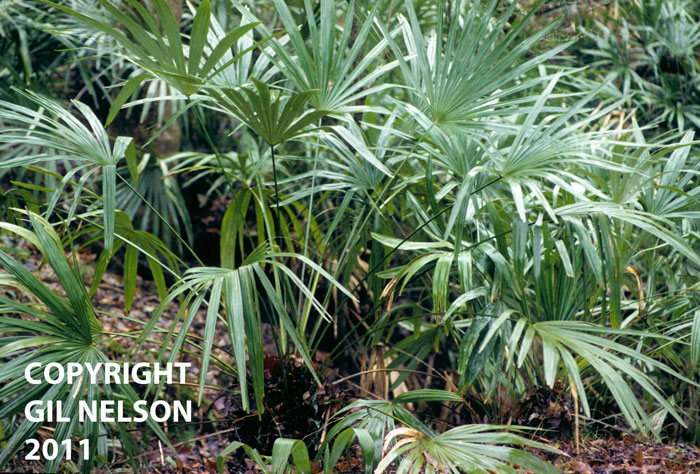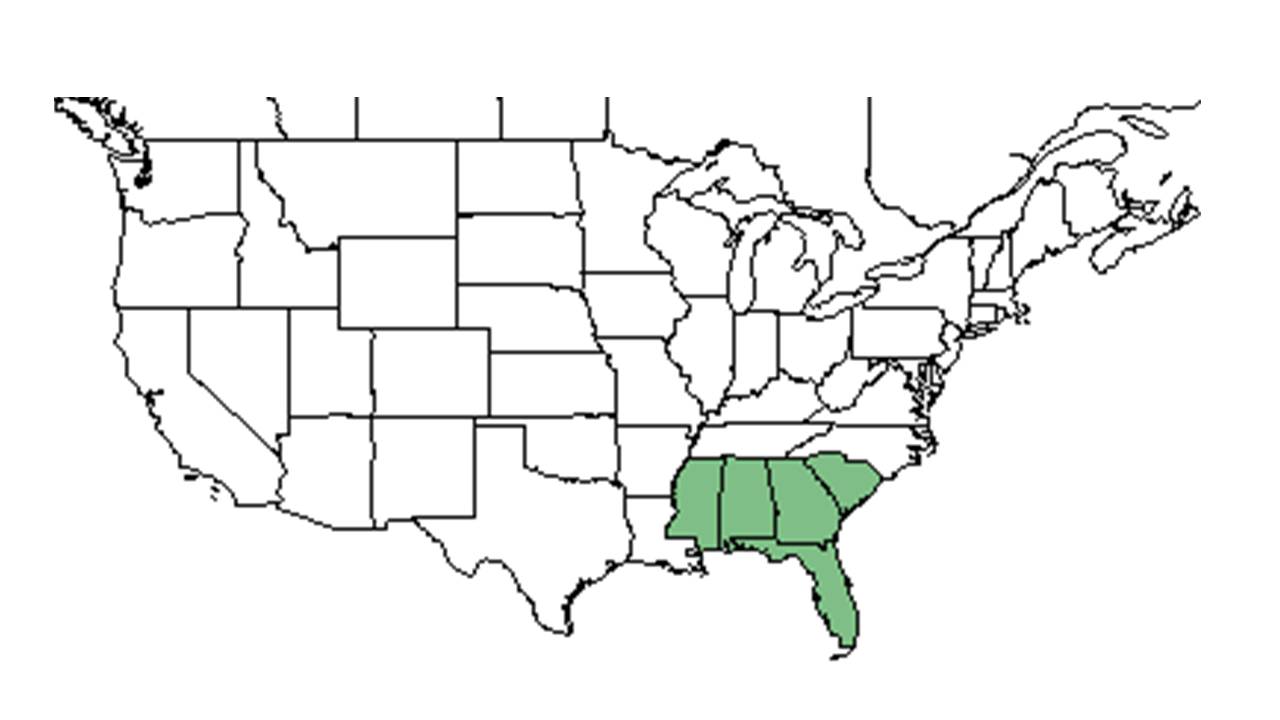Rhapidophyllum hystrix
| Rhapidophyllum hystrix | |
|---|---|

| |
| Photo taken by Gil Nelson | |
| Scientific classification | |
| Kingdom: | Plantae |
| Division: | Magnoliophyta – Flowering plants |
| Class: | Liliopsida – Monocotyledons |
| Order: | Arecales |
| Family: | Arecaceae ⁄ Palmae |
| Genus: | Rhapidophyllum |
| Species: | R. hystrix |
| Binomial name | |
| Rhapidophyllum hystrix (Pursh) H. Wendl. & Drude ex Drude | |

| |
| Natural range of Rhapidophyllum hystrix from USDA NRCS Plants Database. | |
Common name: Needle palm
Contents
Taxonomic notes
Description
A description of Rhapidophyllum hystrix is provided in The Flora of North America. Rhapidophyllum hystrix is a perennial shrub with needles at the base of its leaves.[1]
Distribution
R. hystrix is endemic to the longleaf pine range from southeastern Virginia to central Florida and west to southeast Texas.[2]
The Rhapidophyllum genera is endemic to the longleaf pine range from southeastern Virginia to central Florida and west to southeast Texas.[3]
Ecology
Habitat
R. hystrix occurs most frequently in shaded wet sandy or loamy soil.[1] It can be found in floodplains, as well as on the slopes of steephead ravines and on limestone outcrops.[1] It appears in several native community types, including mixed hardwood woodlands, Magnolia-Tilia-Hydrangea bluffs, and cabbage palm-hardwood hammocks.[1] It can also occasionally be found in disturbed areas like roadsides.[1]
Associated species include Sabal minor, Magnolia virginiana, Hydrangea quercifolia, Sabal palmetto, and Gordonia lasianthus.[1]
Phenology
R. hystrix has been observed flowering in February and April to June, while fruiting has been observed in February and August.[1][4]
Conservation, cultivation, and restoration
Cultural use
Photo Gallery
References and notes
- ↑ 1.0 1.1 1.2 1.3 1.4 1.5 1.6 Florida State University Robert K. Godfrey Herbarium database. URL: http://herbarium.bio.fsu.edu. Last accessed: June 2014. Collectors: Loran C. Anderson, Robert K. Godfrey, Lisa Keppner, Angus Gholson, James R. Burkhalter, R. Kral, Gary R. Knight, Mark Garland, Sidney McDaniel, Richard D. Houk, L.B. Thein, S.D. Latimer, Patricia Elliot, George R. Cooley, Carroll E. Wood, Jr., Kenneth A. Wilson, Leonard J. Brass, R.S. Mitchell, and A.F. Clewell. States and Counties: Florida: Citrus, Clay, Escambia, Gadsden, Jackson, Jefferson, Lake, Leon, Liberty, Okaloosa, Santa Rosa, Taylor, Wakulla, and Washington. Georgia: Clay and Grady. Alabama: Baldwin.
- ↑ Sorrie, B. A. and A. S. Weakley 2001. Coastal Plain valcular plant endemics: Phytogeographic patterns. Castanea 66: 50-82.
- ↑ Sorrie, B. A. and A. S. Weakley 2001. Coastal Plain valcular plant endemics: Phytogeographic patterns. Castanea 66: 50-82.
- ↑ Nelson, G. PanFlora: Plant data for the eastern United States with emphasis on the Southeastern Coastal Plains, Florida, and the Florida Panhandle. www.gilnelson.com/PanFlora/ Accessed: 13 DEC 2016